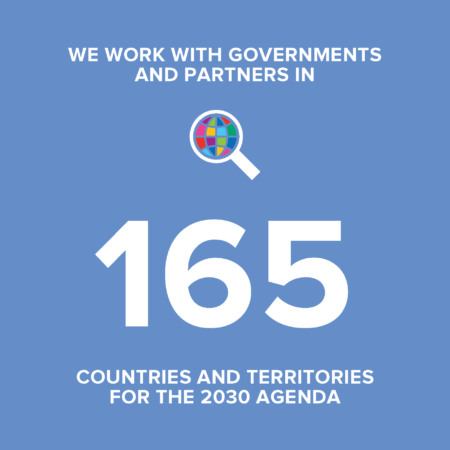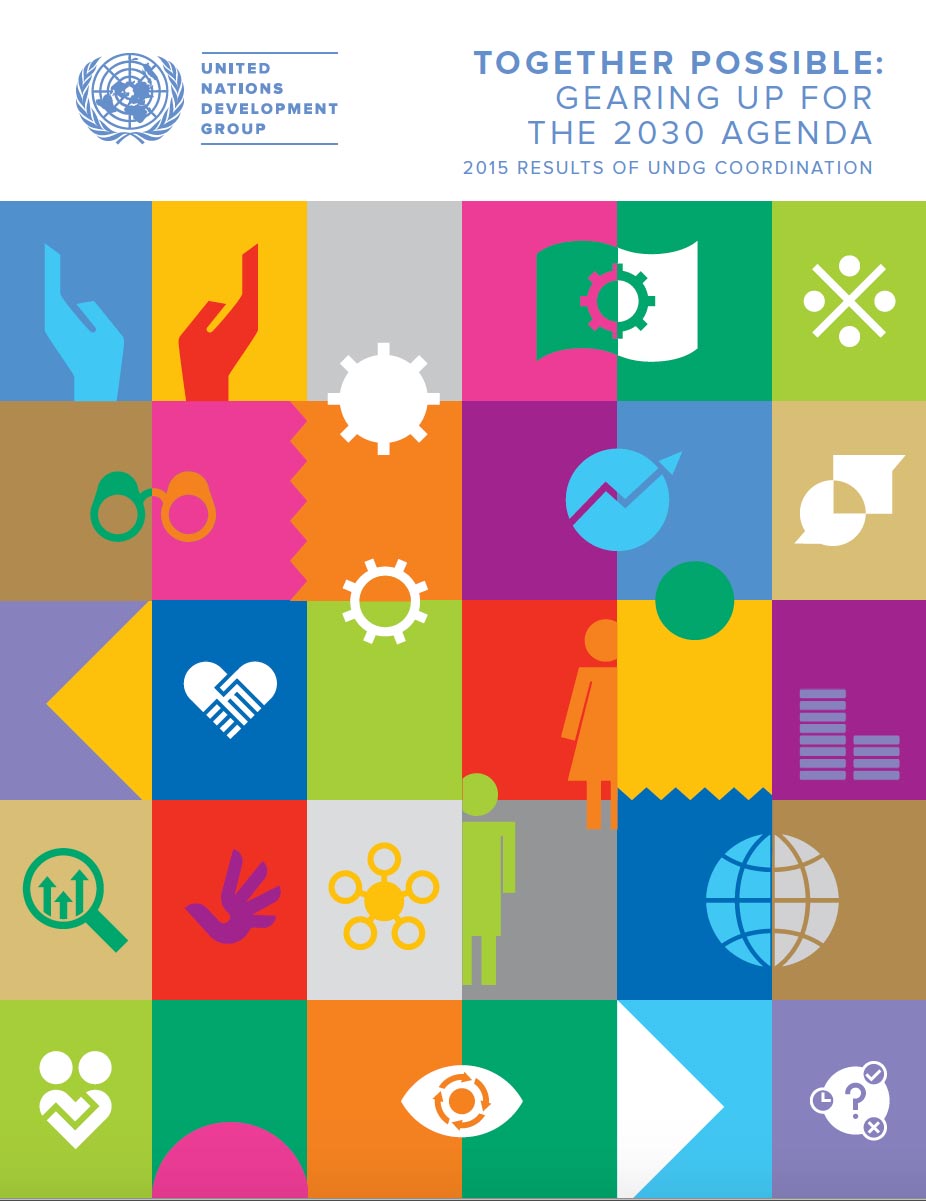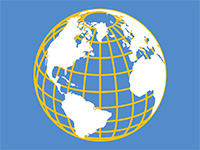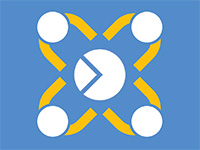BY Clement Gba | 01 January 1970
At the UN in Viet Nam, we had a hunch that sharing costs associated with IT equipment, infrastructure, and skilled staff would improve our overall efficiency and save costs. With this hypothesis in mind, we started working on an integrated One United Nations Information Communications and Technology (One UN ICT) system as part of the reforms of the Delivering as One initiative.
In April 2015, 12 UN agencies unified their information, communication and technology systems and started working under one roof at the Green One UN House. This move is part of the Deliver Green initiative which aims to make the UN a carbon neutral organization by 2020.
The difficult bits
Technical: Integrating 12 IT systems into one was not an easy task. We also had to ensure proper separation of our IT networks for security purposes. In the context of UN Country Office operations, this is a major achievement.
Financial: The integration of IT infrastructures and systems required upfront costs, with a return on investment beyond the first years. This means that we needed to spend some time developing a strong business case and understanding of the financial and non-monetary benefits in order to get investments from the managers across 12 UN agencies.
Institutional: To accommodate the administration of staff, ICT policies, compliance, and requirements, we had to create a unique set of governance and institutional arrangements.
Human resources: Prior to the move, our ICT staff only supported users from their respective UN agencies. Under the new initiative, all ICT staff provide support to users from the 12 UN entities operating at the Green One UN House.
To scale up the One UN ICT project, we sought help from headquarters, with two interagency missions in 2008 and 2012. We also received support from the United Nations International Computing Centre in Geneva which with us for more than a year to make the integration of the systems a success.
What we got out of this effort
Extension of ICT services: All UN Viet Nam staff, whether based in Vietnam or providing advisory services to the government from elsewhere, project-based staff, as well as staff living outside the capital city of Hanoi have access to telephone services. This means the whole UN system in Vietnam can now call each other for free anytime, anywhere, so long as they have an internet connection.
Provision of additional ICT services: The Green One UN House, now uses Cisco Jabber, an application that enables computers and mobile devices to function as a telephone via Voice over IP technology and uses the wire/wireless network as the medium for transmitting telephone service. The application works beyond the physical compound of our office.
Provision of file server storage services: UN agencies in Vietnam have a Business Continuity Plan. The new data system provides a file storage server that can also be used by other Country Offices as part of their Business Continuity Plans.
Client-focused and quick turnaround for ICT requests: All ICT services and transactions are managed by Common Services. The system triggers a ticket number that assists the back-office assign a request to an IT expert. The system is benchmarked against specific key performance indicators, and helps managers track and trace users’ requests. A user feedback survey also helps measure the quality of the services. This model provides real-time updates on the operations of the team and is going to be expanded to other UN Operations Centers as well as Country Offices.
We hope that sharing our experience will be useful to other teams trying to save money and optimize workflows. At the UN in Viet Nam, we are proud to be working with a highly skilled and a top-notch IT team. Yes, this is not an easy road but based on our experience, the benefits (in terms of systems upgrade) far outweigh the challenges!
Photo caption: The Green One UN House IT Team/ UNCT Viet Nam
BY Bianca Juhl Andersen | 01 January 1970
A 14-year old orphan girl told us her story. When her parents died, she was forced to drop out of school. She was 10 years old. In a desperate attempt to earn money to provide for herself and her younger siblings, she became a sex worker. She charges GHS 5-12 (USD1,25-3) per customer - barely enough to even cover her expenses. She sleeps outdoors, despite the high risks of theft and sexual assaults - especially during the frequent power cuts in Accra, Ghana’s capital, leaving the area dark and dangerous. Her dream is to go to school, and to gain skills to get a good job. But first she has to deal with her daily need to earn money, the ever-present danger of assault and violence from customers, and health risks.
These are some of the stories we have been hearing during a consultative process we as the UN in Ghana have convened over the past several months. We have been listening to human rights experts, advocates and representatives on the human rights challenges in Ghana; on both current and future challenges. Based on these expert inputs, we reached out to excluded groups who have little or no voice in Ghana: people with disabilities, lesbian, gay, bisexual, transgender and intersex people (LGBTIs), underage sex-workers, prisoners, and injection drug users.
We wanted to consult representatives of groups of people, whose human rights are at risk of not being respected, and have little or no access to decision makers in Ghana. For the first time, we used our networks to identify people from these hard-to-reach groups and met with them to better understand the human rights challenges they are facing.
Obscured by data gaps
We met with representatives from three of the identified groups, where we had vast data access difficulties: underage sex workers, the LGBTI community, and injection drug users – about 50 people in total. We asked open-ended questions because we wanted to understand the challenges they face with respect to their human rights. While challenges differed across the three groups, there were common concerns such as security and personal safety, stigmatization from society, the need for education and skills training, and the lack of access to health facilities and medical care.
When we talked to, for instance, the underage sex workers, they all shared a common wish to stop working in the sex industry. They wanted to go to school instead – they wanted a “normal” life. But to stop working as sex workers and return to school, they need to get an income to provide for themselves and their families.
In our work in Ghana, the UN is committed to ensuring that human rights are recognized and protected. Human rights are at core of the UN’s pledge to support Ghana in meeting its commitment to the sustainable development agenda. Despite our ongoing programmes, these harrowing stories were new to us, as we hardly even knew that underage sex workers — or intravenous drug users for that matter — existed in Ghana to the extent they do.
The need to check in with those we serve
Engaging with people who face these issues changed our thinking. We assumed they wanted to be taken off the street and given educational opportunities. But that was not necessarily the case — at least not in the short run. The main objective of the underage sex workers was to ensure an income for their families – and to stay safe. In the long run, they want expanded opportunities, but in our strategies, we need to consider interventions that preserve the income they provide to their families.
We are now exploring how best to enable government and other partners to address the problems we heard, in the UN’s next strategic plan, the UN Development Assistance Framework (UNDAF) 2018-21, via interventions by UN agencies working together to make sure that no one is left behind in Ghana. The UNDAF will be finalized in partnership with national stakeholders in 2017. We will keep you posted on how we will address the issues heard in our consultations. As we move forward, the UN will support Ghana to ensure that human rights challenges are fully addressed - so that no one is left behind.

 UNDGSustainable Development Goal 1: End poverty in all its forms everywhere
UNDGSustainable Development Goal 1: End poverty in all its forms everywhere UNDGSustainable Development Goal 2: End hunger, achieve food security and improved nutrition, and promote sustainable agriculture
UNDGSustainable Development Goal 2: End hunger, achieve food security and improved nutrition, and promote sustainable agriculture UNDGSustainable Development Goal 3: Ensure healthy lives and promote well-being for all at all ages
UNDGSustainable Development Goal 3: Ensure healthy lives and promote well-being for all at all ages UNDGSustainable Development Goal 4: Ensure inclusive and equitable quality education and promote lifelong learning opportunities for all
UNDGSustainable Development Goal 4: Ensure inclusive and equitable quality education and promote lifelong learning opportunities for all UNDGSustainable Development Goal 5: Achieve gender equality and empower all women and girls
UNDGSustainable Development Goal 5: Achieve gender equality and empower all women and girls UNDGSustainable Development Goal 6: Ensure availability and sustainable management of water and sanitation for all
UNDGSustainable Development Goal 6: Ensure availability and sustainable management of water and sanitation for all UNDGSustainable Development Goal 7: Ensure access to affordable, reliable, sustainable and modern energy for all
UNDGSustainable Development Goal 7: Ensure access to affordable, reliable, sustainable and modern energy for all UNDGSustainable Development Goal 8: Promote sustained, inclusive and sustainable economic growth, full and productive employment, and decent work for all
UNDGSustainable Development Goal 8: Promote sustained, inclusive and sustainable economic growth, full and productive employment, and decent work for all UNDGSustainable Development Goal 9: Build resilient infrastructure, promote inclusive and sustainable industrialisation, and foster innovation
UNDGSustainable Development Goal 9: Build resilient infrastructure, promote inclusive and sustainable industrialisation, and foster innovation UNDGSustainable Development Goal 10: Reduce inequality within and among countries
UNDGSustainable Development Goal 10: Reduce inequality within and among countries UNDGSustainable Development Goal 11: Make cities and human settlements inclusive, safe, resilient and sustainable
UNDGSustainable Development Goal 11: Make cities and human settlements inclusive, safe, resilient and sustainable UNDGSustainable Development Goal 12: Ensure sustainable consumption and production patterns
UNDGSustainable Development Goal 12: Ensure sustainable consumption and production patterns UNDGSustainable Development Goal 13: Take urgent action to combat climate change and its impacts
UNDGSustainable Development Goal 13: Take urgent action to combat climate change and its impacts UNDGSustainable Development Goal 14: Conserve and sustainably use the oceans, seas and marine resources for sustainable development
UNDGSustainable Development Goal 14: Conserve and sustainably use the oceans, seas and marine resources for sustainable development UNDGSustainable Development Goal 15: Protect, restore and promote sustainable use of terrestrial ecosystems, sustainably manage forests, combat desertification and halt and reverse land degradation, and halt biodiversity loss
UNDGSustainable Development Goal 15: Protect, restore and promote sustainable use of terrestrial ecosystems, sustainably manage forests, combat desertification and halt and reverse land degradation, and halt biodiversity loss UNDGSustainable Development Goal 16: Promote peaceful and inclusive societies for sustainable development, provide access to justice for all and build effective, accountable and inclusive institutions at all levels
UNDGSustainable Development Goal 16: Promote peaceful and inclusive societies for sustainable development, provide access to justice for all and build effective, accountable and inclusive institutions at all levels UNDGSustainable Development Goal 17: Strengthen the means of implementation and revitalise the global partnership for sustainable development
UNDGSustainable Development Goal 17: Strengthen the means of implementation and revitalise the global partnership for sustainable development














































